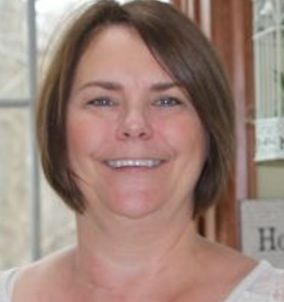 Lisa completed both a college degree and a graduate degree in Counseling Psychology in midlife. With her father’s passing, and his inspiration, she chose to use her gifts to launch a nonprofit helping the unsung heroes who care for the ill and the elderly.
Lisa completed both a college degree and a graduate degree in Counseling Psychology in midlife. With her father’s passing, and his inspiration, she chose to use her gifts to launch a nonprofit helping the unsung heroes who care for the ill and the elderly.
Tell us a little about your background…
I grew up in a neighborhood of Pittsburgh called Westwood, the youngest of six children. My parents founded and managed a roofing company, where I learned the value of a work ethic. At times, my father would have my sister and me help with cleaning up the shingles that were ripped off the roof—whatever fell into the yard or bushes, that didn’t make the dumpster. We would also clean his shop. I also learned from my mother, who ran the business from the office, and her many organizational skills; at times, she would have me help with sealing and stamping envelopes.
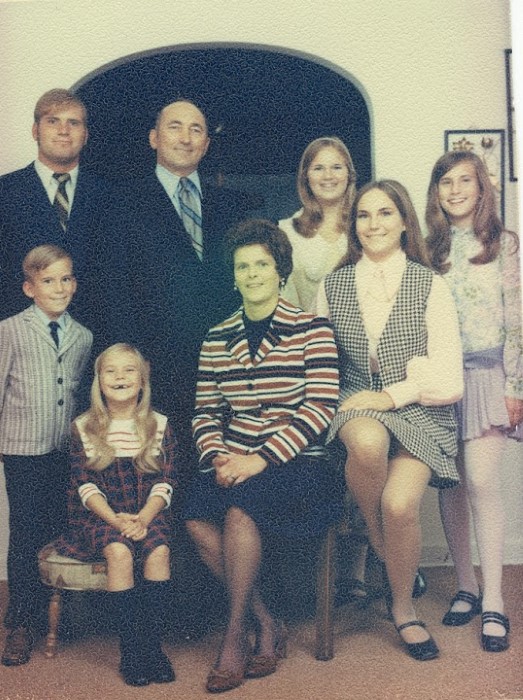
My father was an avid outdoorsman and we spent many hours in the summertime at a cottage near Pymatuning Lake, in Espyville, Pennsylvania. Learning to explore the creeks, trails, and lakes of that area gave me a love for nature and all things growing.
I am still married to the wonderful man I married at 19; Chuck is the complete opposite of my free spirit but recognizes my need for constant exploration and an ever changing identity. Marrying young and moving to Arizona helped shape who I am today. In Arizona, Chuck was in school full time studying aeronautical engineering while I owned and operated a daycare, driven by the need to work but the desire to not put my first two children in daycare.
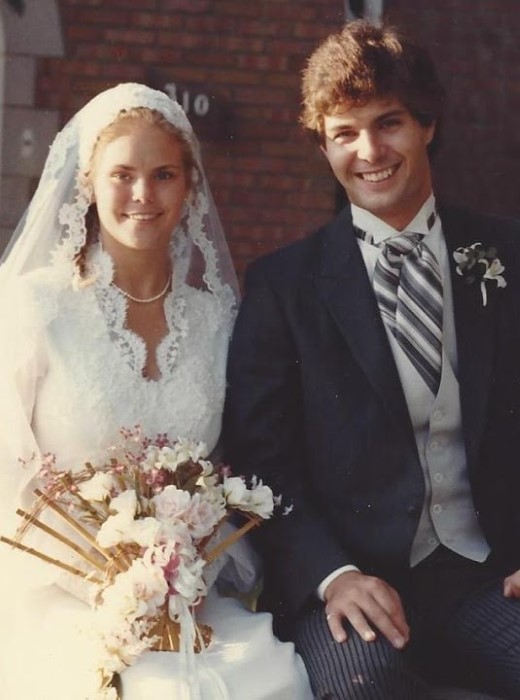
By 27, we were back in Pittsburgh, having had two additional children. I started a small embroidery business out of our home and kept busy with the children’s school PTO. I spent a large percentage of my married life as a work-from-home mother and, once my younger two children were in middle school, I began working outside the home as a secretary.
When did you start to think about making a change in midlife?
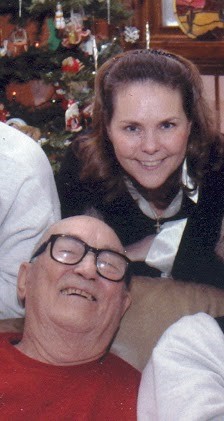
With my dad a few years before he died
With a burning desire to receive an education, I began working on my undergraduate degree when I was in my early forties, while also working as a secretary, at Robert Morris University (RMU). It wasn’t until my father was diagnosed with pancreatic cancer and died in 2005 that I had an “aha” moment that created a desire to charge full force into finishing my undergraduate degree. As I was exploring core subjects, I realized psychology would be the best fit for me.
I then left RMU and transferred my credits to Chatham University, completed my undergraduate degree in psychology and then my graduate degree in Counseling Psychology, all the while achieving a certificate in horticultural therapy and starting a non-profit. While I was in my studies at Chatham, most of my elective courses were in death, dying, and grief counseling. Still struggling somewhat with the loss of my father, my second parent—my mom died when I was 22 years old—I felt disconnected from the world, about as unpredictable as nature.

Graduating with my Masters
Searching for a way to keep evolving, I planted, with the help of my family—including our soon to be son-in-law, Josh—my first vegetable garden. Always an avid gardener of flowers, moving forward with the idea of nurturing the body, mind, and soul through vegetable growing became a passion. I found working with the plants holistic and healing; soon gardening provided a space for me to come to terms with the identity loss that so many experience with a loss. As I began to reconnect, a dream from my late father divinely inspired me to begin helping others to feel the same way.
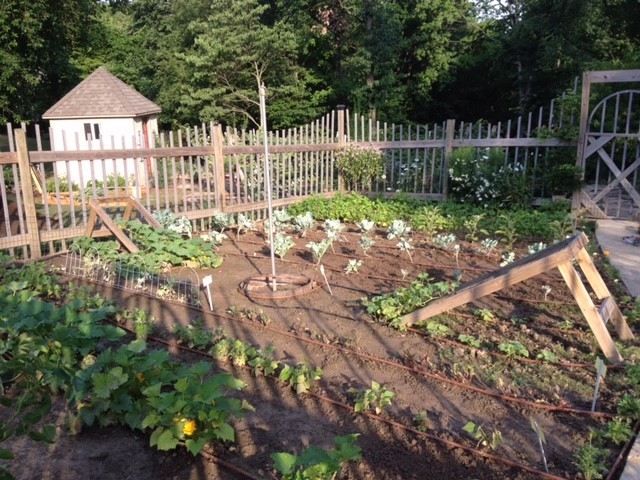
What is your next act?
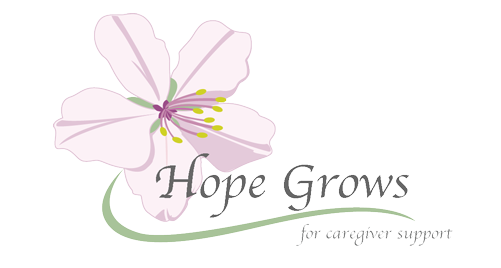 In 2011, at the age of 47, I founded Hope Grows, a nonprofit providing support to caregivers, mainly family caregivers. Our mission is to inspire hope through nature while empowering caregivers to seek wellness of mind, body, and spirit. Our core values are deeply embedded in the belief that nature and the natural world are therapeutic and that wellness can occur through mindfulness, positive thinking, and a connection of mind, body, and spirit. Our services include counseling and support through mental health therapy, peer support groups, and education. We offer therapeutic respite through the use of essential oils, nature walks, labyrinth walks, and programming that allows the caregiver a short break. We are developing a professional caregiver model of stress management, compassion fatigue, and mediation between the professional health staff and the family caregiver.
In 2011, at the age of 47, I founded Hope Grows, a nonprofit providing support to caregivers, mainly family caregivers. Our mission is to inspire hope through nature while empowering caregivers to seek wellness of mind, body, and spirit. Our core values are deeply embedded in the belief that nature and the natural world are therapeutic and that wellness can occur through mindfulness, positive thinking, and a connection of mind, body, and spirit. Our services include counseling and support through mental health therapy, peer support groups, and education. We offer therapeutic respite through the use of essential oils, nature walks, labyrinth walks, and programming that allows the caregiver a short break. We are developing a professional caregiver model of stress management, compassion fatigue, and mediation between the professional health staff and the family caregiver.
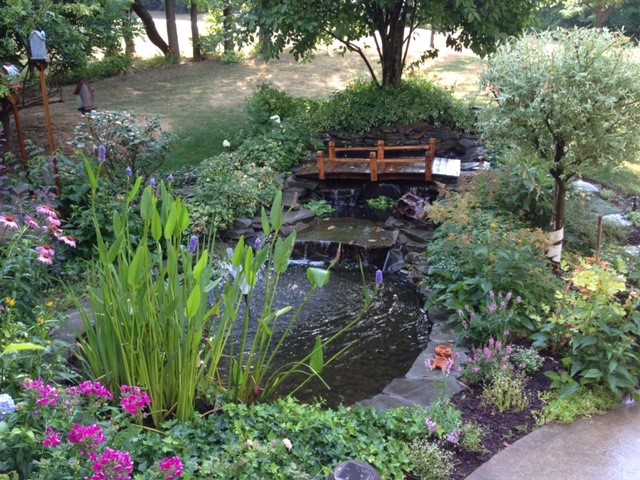
In 2015, our third year as a nonprofit, Hope Grows served, on average, 50 caregivers and care recipients every month, and has provided 62 hours of education, 96 hours of therapeutic respite, and 380 hours of volunteer service. We have a very active board of directors with seven individuals currently helping to run the nonprofit, donating their time and energy to carry out our mission. I am the (volunteer) Executive Director, counselor, and go to person but I do hire sub-contractors to help with our programming and activities.
I also do speaking engagements, typically by word of mouth and referrals. I only charge when I am presenting on a topic that is educational in nature, such as stress management or compassion fatigue. I do not charge when I am presenting about Hope Grows and advocating for the need to support family caregivers. I typically ask for a donation to the organization. Most of my speaking has been local but I just recently received an invite to present to an agency on aging in another county in Pennsylvania. I am also submitting a speaking proposal for the National Arch Respite Conference in September, which will be held in Denver, CO.
Our biggest endeavor is the opening of a bed & breakfast for caregivers to be able to escape to a retreat that will help them to regain balance, as well as seek counseling and support. The goal is to help them return home with coping skills that will allow them to increase their quality of life and decrease the occurrence of chronic illness. We currently have a home that is surrounded by 2 ½ acres of nature. There are five healing and restorative gardens on the property and we have plans to develop the remaining acreage. We are applying for a county grant to be able to complete the zoning required for house renovations and the development of the remaining gardens so that we can open our doors to caregivers.
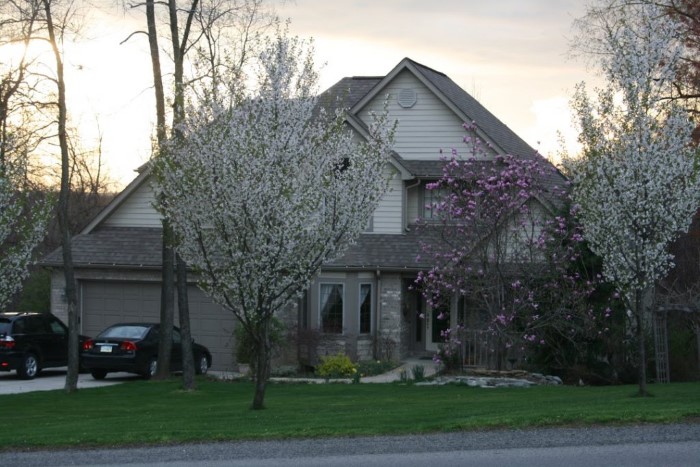
Future Hope House
What are the needs of caregivers that you are working to address?
Caregiving takes a significant toll on the caregiver’s mental, emotional, and physical health. Studies show that caregivers are in worse health than others due to lower levels of self-care; they have an increased risk of heart disease, show more frequent signs of depression, and suffer from high levels of stress and frustration. They pay the ultimate price for providing care—an increase in mortality. The sad part to these statistics is that caregivers are more likely to ignore their health and NOT seek support, often due to tight budgets; caregivers spend on average $5500 a year on care costs and many quit their careers to provide care in the home, as most cannot afford reliable replacement care.
This is why our mission is so important to me and hopefully to all of you, building awareness of the need, creating a unified front with larger caregiver communities, and developing a model that will empower caregivers to seek wellness of mind, body, and spirit. I remain passionate about achieving our vision in putting a stop to the ultimate risk of caregiving, death! Caregivers should not die for providing care to others and your help is needed. Sorry, I really get passionate about educating people on the need for this support.

Why did you choose this next act?
The inspiration for this work with the nonprofit is rooted in my love for my father. His death inspired this change and after he died I learned there was not enough support for the family caregiver and their families.
I believe in the power of the connection between people and plants, and the maintenance of optimal health through a holistic and mindful focus. I recently have been told that I am a Renaissance woman, but I consider myself to be a trailblazer—through the garden path—in providing a new way for the healthcare industry to view the silent client, the family caregiver.
I believe I chose this next act to be able to share this vision and empower the community to become part of the mission.
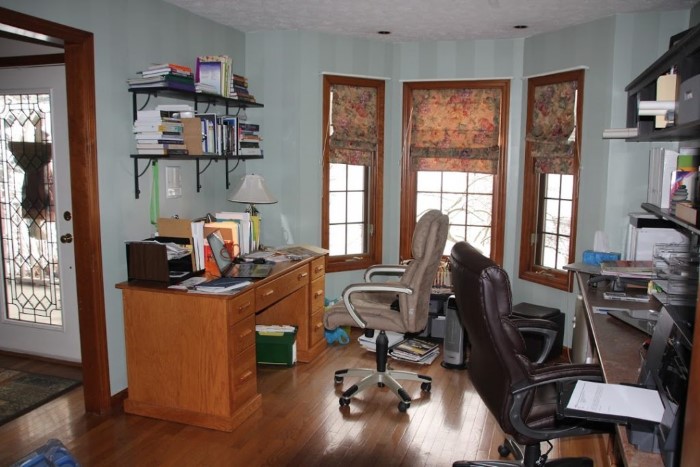
Our Hope Grows office
What other options did you consider?
I did not consider other options. I learned through my journey of grief is that listening to my higher self (intuition or gut feel) became the fuel for finding my purpose. I continue to always reinvent me within this spectrum of purpose. I have always been someone who was extremely aware of me, but I continue to learn about mindfulness in that spectrum of mind, body, and soul awareness.
I also learned through the path of sadness, that spirituality played an unexplainable role in the determination to make sense of my loss and how it was affecting my entire being, mind, body, and spirit.

Our miniature garden
How did you figure out which way to go?
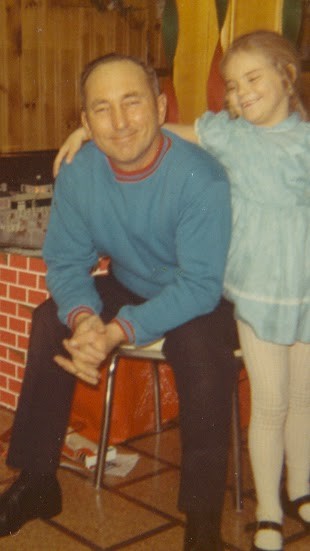
With my dad, as a young girl
I followed my heart and intuition, that gut feel that I have always listened. Before my dad died, I used to be the type of person that when a door closed (an opportunity) I would stand behind it (not literally) and contemplate what I might have done wrong. I now ask my dad to show me the open window and 99% of the time something happens that leads me to the next step along this journey.
I’m not quite sure how I was motivated to take Hope Grows from idea to implementation, other than the guidance of my deceased father and the support of family and friends. To this day, I feel like I had a spiritual push that continues to drive my motivation. I have never been purpose driven but this truly has become my purpose.
From the start, I knew Hope Grows needed to be a nonprofit because family caregivers could not afford to receive services. This type of support is also not reimbursable through health insurance. As mentioned above, caregiver budgets are already tight and more work needs to occur for “respite money” to be put towards a “caregiver break.” Getting the larger caregiver communities on board is vital in supporting their caregivers to gain an overnight break, at a place like the bed & breakfast Hope Grows is creating.
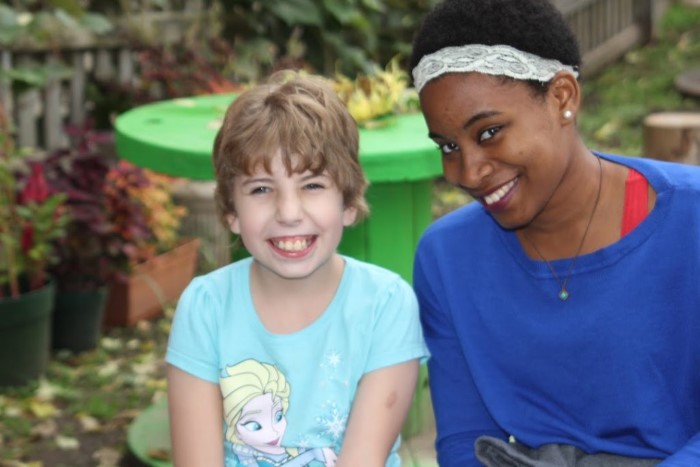
Volunteer with child of a caregiver
I founded Hope Grows shortly before I graduated with my Masters in Counseling Psychology. After graduation, I began working in the hospice field as a spiritual and bereavement counselor while working towards my credentials to become a Licensed Professional Counselor and a certified Thanatologist (someone who is trained in the studies of death and dying). Just recently, I left that position to devote myself full time to Hope Grows.
How hard was it to take the plunge?
I don’t recall it being hard to take this plunge, because I didn’t see it in the terms of falling, pushing, or throwing in the sense of the definition of the word. I saw it as opportunity for growth, and evolving, and reinventing. I am a cautious risk taker and typically not afraid of taking chances or changing, so I think in part with my Type A personality, I saw it as an adventure. In addition, when one works through grief, a part of that journey is reinventing your identity while finding a place for the memories of the one you lost. I was searching for a new identity.
I began by seeking out resources and support in the nonprofit area, and then researched how to incorporate and start a nonprofit. I looked at local resources and went to workshops to learn how to start a nonprofit. I continue to educate and surround myself with people who know more than I do.
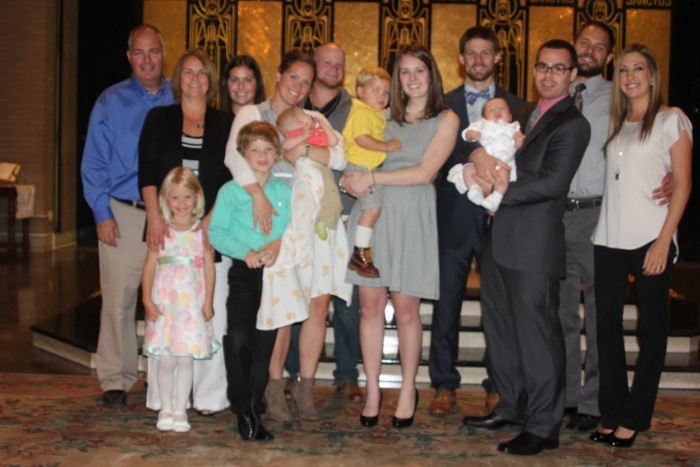
Chuck and I with our children and grandchildren
How supportive have your family and friends been?
My family and friends were and still are very supportive. Two of my high school friends currently serve on the board of directors for Hope Grows. One in particular, Denise, was very supportive of my passion and desire to achieve my degree.
I would have to say, my spouse was not as supportive as I had hoped in the beginning. I’m going to stereotype a little here, but I think the male ego is fragile and I think he saw this new change in midlife as a little bit threatening. I mentioned that I was a housewife and mother first and Chuck was comfortable with this arrangement and with being the breadwinner. Don’t get me wrong, he is a great guy and, once his ego was in check (a little psychology for you), he has been hands on and supportive with everything that I am doing.
Chuck serves on the Board of Directors and helps out wherever he can. I have a nephew who also serves on the Board of Directors. My niece has given many volunteer hours helping with administrative work. My children and their significant others help with garden maintenance and attend all of our events and support and help in any way they can. I have extended family, sisters and brothers, in-laws, nieces and nephews, aunts and uncles, cousins, and friends who contribute time and donations, and support in any way they can. I am blessed to have so many loving members of my family and extended community, people who believe in me and in my ability to take Hope Grows from an idea to a sustaining organization.
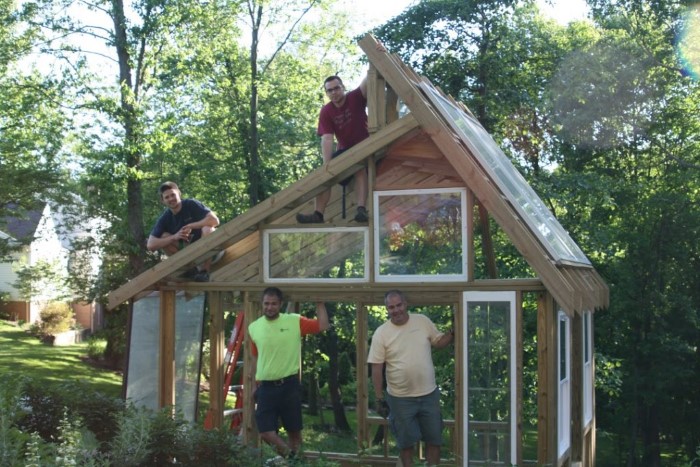
Chuck with our son and son-in-laws, building our greenhouse
What challenges have you encountered?
I would have to say the biggest challenge I have encountered is balancing everything: attending school, being a wife and mother (and a grandmother eventually!), managing our household and social life. Thank goodness I didn’t have to work on top of that; I have been very blessed in that area of my life.
As for the organization, one challenge is in the area of communication. As with a lot of missions, ours does not speak for itself. Unless you have been in those shoes, it is hard to relate to the strain and stress and have it pull at your heartstrings. We use social media, word of mouth, and the larger caregiver communities for referrals to our services. Not having a lot of money for advertising or paid employees, we have to balance the aid we can provide with the appropriate infrastructure to support it. We are making progress, learning how to use social media and communicate better, and leveraging interested communities and our volunteers to help. In time, we will be financially sustainable and I can take off some of the many hats that I currently wear.
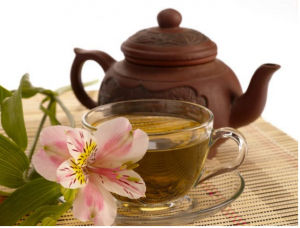 Another challenge, maybe our biggest, is making sure Hope Grows becomes financially sustainable. We raise funds through two events per year along with online donation campaigns and small grants. We have an event coming up on May 22 called A Victorian Tea and Tee Time Golf Classic. The Victorian Tea is in our third year and survey results suggested we add a golf event since it was held at a golf club. So this year, we are adding the golf outing and including a dinner with good food and entertainment, raffles, and auctions. Our event is based around creating conversation on caring for the caregiver. Gaining a national corporate sponsor would be ideal in helping with our cause. In the fall, we host a Hike for Hope, walking in nature in the support of caregivers.
Another challenge, maybe our biggest, is making sure Hope Grows becomes financially sustainable. We raise funds through two events per year along with online donation campaigns and small grants. We have an event coming up on May 22 called A Victorian Tea and Tee Time Golf Classic. The Victorian Tea is in our third year and survey results suggested we add a golf event since it was held at a golf club. So this year, we are adding the golf outing and including a dinner with good food and entertainment, raffles, and auctions. Our event is based around creating conversation on caring for the caregiver. Gaining a national corporate sponsor would be ideal in helping with our cause. In the fall, we host a Hike for Hope, walking in nature in the support of caregivers.
Robert Morris University Psychology students help with these events, as well as with maintenance of the healing and restorative gardens on the property of the future Hope House. We typically get interns from local universities and Bidwell Training Center. Bidwell has a horticulture training center among other vocations, and their students help through their externship program. By accepting interns, we are slowly becoming a training center that gives back to the academic community. Our model, when completely in place, has the potential to support 12 different academic interns at the Graduate and Undergraduate level to vocational, technical, and certificate levels.
Our support programs and therapeutic respite activities— such as the Take a Break in the Dirt Program—are run by interested colleagues and trained volunteers. Take a Break in the Dirt is an adaptive gardening program for children with disabilities and their family caregivers. We were funded by the Pennsylvania Department of Health and implemented an evidence-based respite care worker volunteer model from Temple University. A seasonal program, it provides adaptive gardening for children in a garden setting that they otherwise might not explore while their family caregiver gets to take a short break.
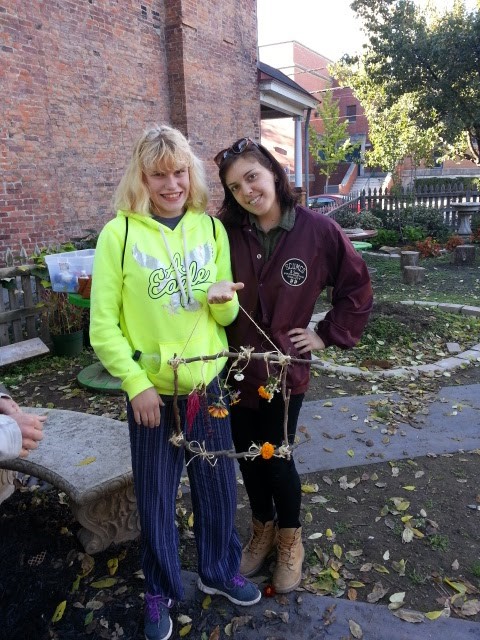
Take a Break in the Dirt Program
Were there times when you thought about giving up?
During the time I was getting my degree I did not think about giving up, however, there have been several occasions I have wanted to throw in the towel with the non-profit. I have often said that it was a good thing that running a non-profit was not my experience or background; knowing what I know now, I may not have started one! I work from home without a salary. The organization currently does not have the budget to hire full-time administrative and other paid positions that a nonprofit could benefit from. Thankfully, I have a great board of directors and we could not do this without our volunteers.
What keeps me going is my spouse, my children, my friends, but most of all the larger community that shares my vision and the need for supporting this worthy cause. And of course, the feedback I receive from the caregivers that we have helped.

Volunteers working with caregiver’s children
I met one woman in one of our support groups called Life After Caregiving. She was struggling with the loss of her spouse, whom she cared for while he battled cancer, while she was also caring for both of her aging parents and working full time. She kept all of her emotions inside and would not open up and talk about her experience. After the first support group, she opened up and began processing her loss.
Here are direct quotes from others we’ve helped:
Lisa really saved me… She pulled me up from drowning. I needed to be with someone who understood what I was going through… She helps you understand that you aren’t going crazy, that your feelings are normal. She is a breath of sunshine when you are going through this [grief].
I really do not have words that can thank you and Hope Grows for the support you give. Some days just coffee and someone to chat with is all it takes to get me through the day! Unless someone has done this job, they will never know. To think at one point I was caring for three loved ones at the same time. Truly it is a group like yours that saved me from jumping a bridge! Keep up the things you do! I hope to be a bigger part of Hope Grows in the future.
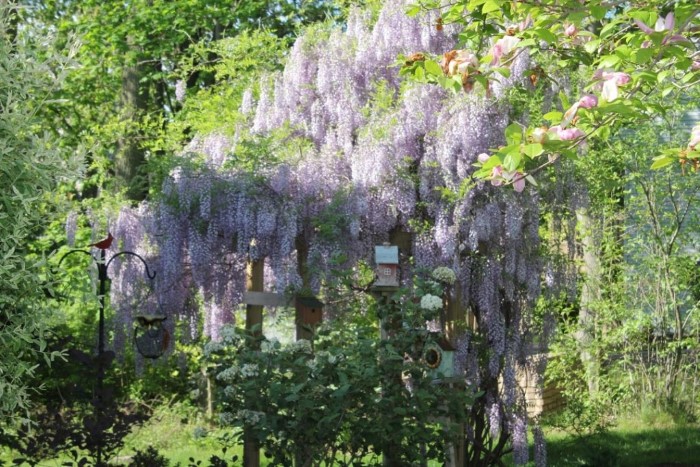
What have you learned about yourself through this process?
I learned that I have a lot to offer. I think living a purpose-driven life fuels me. I have also found a voice, a different one but one I knew was always deep inside.
I have also learned that every part of who I am now has been influenced by many factors. I believe that heredity and environment, my family and schooling, have all shaped my beliefs and values. My philosophy of living has been molded by the developmental growth of life experiences.
What advice do you have for women seeking reinvention in midlife?
It’s kind of ironic that I am answering this question today because I just met someone, this morning, who asked me this same question. I read an academic book once called Aging Well: Surprising Guideposts to a Happier Life from the Landmark Harvard Study of Adult Development. The message that I learned was the importance of always having the desire to reinvent yourself at any age. I shared today with this woman that when you feel stuck in midlife or what you are doing isn’t working well for you anymore, it’s time to start the reinvention of your identity.
Our identity is always changing and listening to intuition and our “gut” about what path to pursue is vital to staying young at heart. I truly believe that our purpose in life, our journey through the unknown, is defined by what feels right in our hearts. Also, our careers or jobs do not define who we are. What defines us is how we continue to reinvent who we are along this short passage of time on this earth. For me, it helped to believe in spiritual signs to help guide the way.
There are many factors to consider and I’m probably looking at this question as too broad for everyone because everyone has different circumstances. I guess the counselor in me is coming out, but if you don’t know how to begin reinventing you, then seek support to understand your risk level, your fear level, your motivation for a new journey. Put your support systems in place even if it is just one person who believes in you, and go forth at full speed. Looking back is a waste of time because you can’t repeat anything.
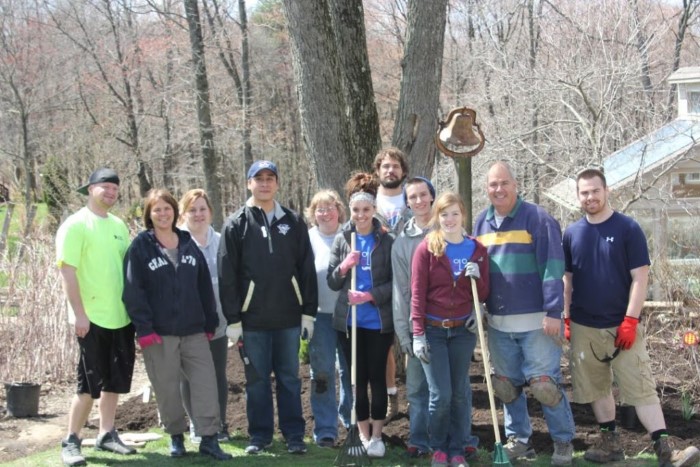
Spring volunteer garden day
What advice do you have for those interested in launching a service-based nonprofit?
Research the needs of the community and what nonprofits may already be targeting those needs. Just because you have a great idea for a service doesn’t mean that there isn’t something already in place providing that same line of support.
Collaboration is key and you need to check your ego at the door. What I mean by ego (noun) is the inflating feeling of pride in being superior to others. Stay focused on your mission; for me, it was to help others. When it becomes about me, the path becomes distorted with weeds and overgrown plants that are out of control.
What resources do you recommend for caregivers? For those wanting to start a nonprofit?
For inspiration:
Everything Matters, Nothing Matters: For Women Who Dare to Live with Exquisite Calm, Euphoric Creativity & Divine Clarity by Gina Mazza Hillier
Three Weeks with My Brother by Nicholas Sparks
The Alchemist by Paulo Cuehlo
Like the Flowing River: Thoughts and Reflections by Paulo Cuehlo
The Celestine Prophecy: An Adventure by James Redfield
Twelfth Night by William Shakespeare
Tuesdays with Morrie: An Old Man, a Young Man, and Life’s Greatest Lesson by Mitch Albom
Nonprofit Resources:
The Bayer Center for Nonprofit Management at Robert Morris University is where I attended workshops.
Carnegie Library of Pittsburgh Nonprofit Center
Web Design: OrgSpring
Legal Help: Ryan Lemke at Hergenroeder Rega Ewing & Kennedy, LLC
Strategic Planning: Amy Fazio & Associates
Communications Planning: Kelly Burgos Creative Services
Caregiver Resources:
Memories of My Parents by Amy E. Madge
Daily Comforts for Caregivers by Pat Samples
Finding Your Way a Practical Guide for Family Caregivers by Dr. Linda Rhodes
National Alliance for Caregiving
There are many organizations that caregivers can tap into by connecting on the Internet, but I believe that it only helps temporarily. Humans need social bonds for ultimate wellness, where they can tie the knot of connected services that links to “in person” support.
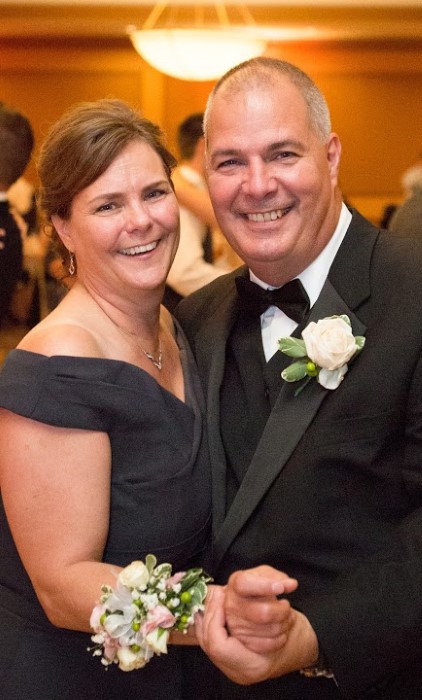
What’s next for you? Do you think you have another next act in your future?
My main focus is on the sustainability of Hope Grows and our mission. We are still a very new and vulnerable organization and I want to know I can eventually walk away and the nonprofit will succeed. I currently work without a salary and, while I am fortunate that I can do that, I would like to gain financial stability.
I continue to speak on behalf of the need for an organization such as ours; as people become aware of Hope Grows, the mission gains support. I would love to see several Hope Grows locations throughout the country and have our services, mission, and vision everywhere.
With fortitude and determination, I feel I can make my dream of providing services for caregivers come true.
I have been given the opportunity to teach at Robert Morris University in the near future in the field of death and dying and grief counseling; I am also working on a couple of research and writing projects.
I think I will always have another next act in my future. I need to stay evolving to stay well and I have quite a large bucket list of items to complete before my time on this earth is over. I have a burning desire to write a book; I have a topic but it is becoming the book that I’m afraid to write for many reasons that I am not ready to share. I also have a desire to live in another part of the world for a couple of years, maybe when I decide to write my first book—or another one.
I have also thought about starting a for-profit business, maybe a diner after the memory of my mom or some type of nature store for mind, body, and spirit. But who knows, one day at a time and one breath at a time.
Contact Lisa Werwie Story at info@hopegrows.net or 412-369-4673
Lisa Story, MSCP, LPC, CT
Hope Grows for Caregiver Support
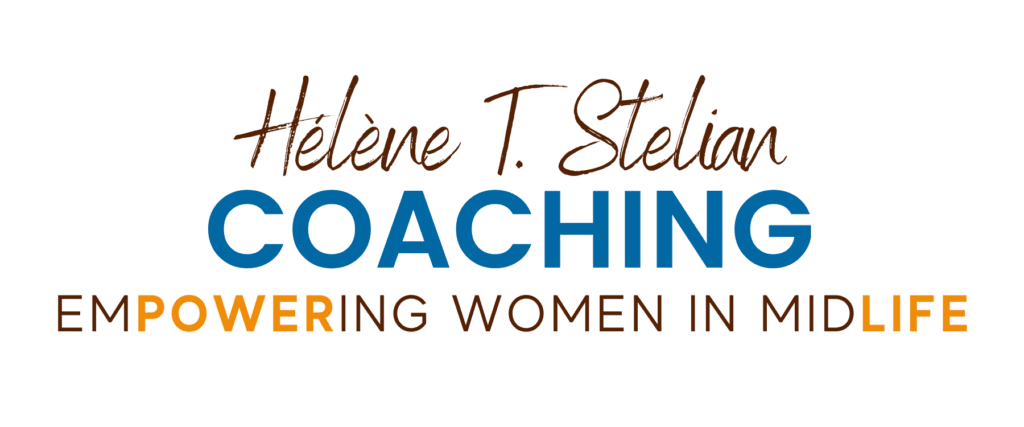
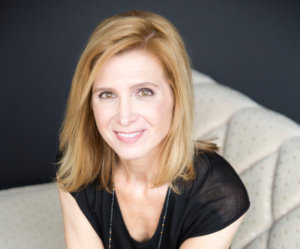
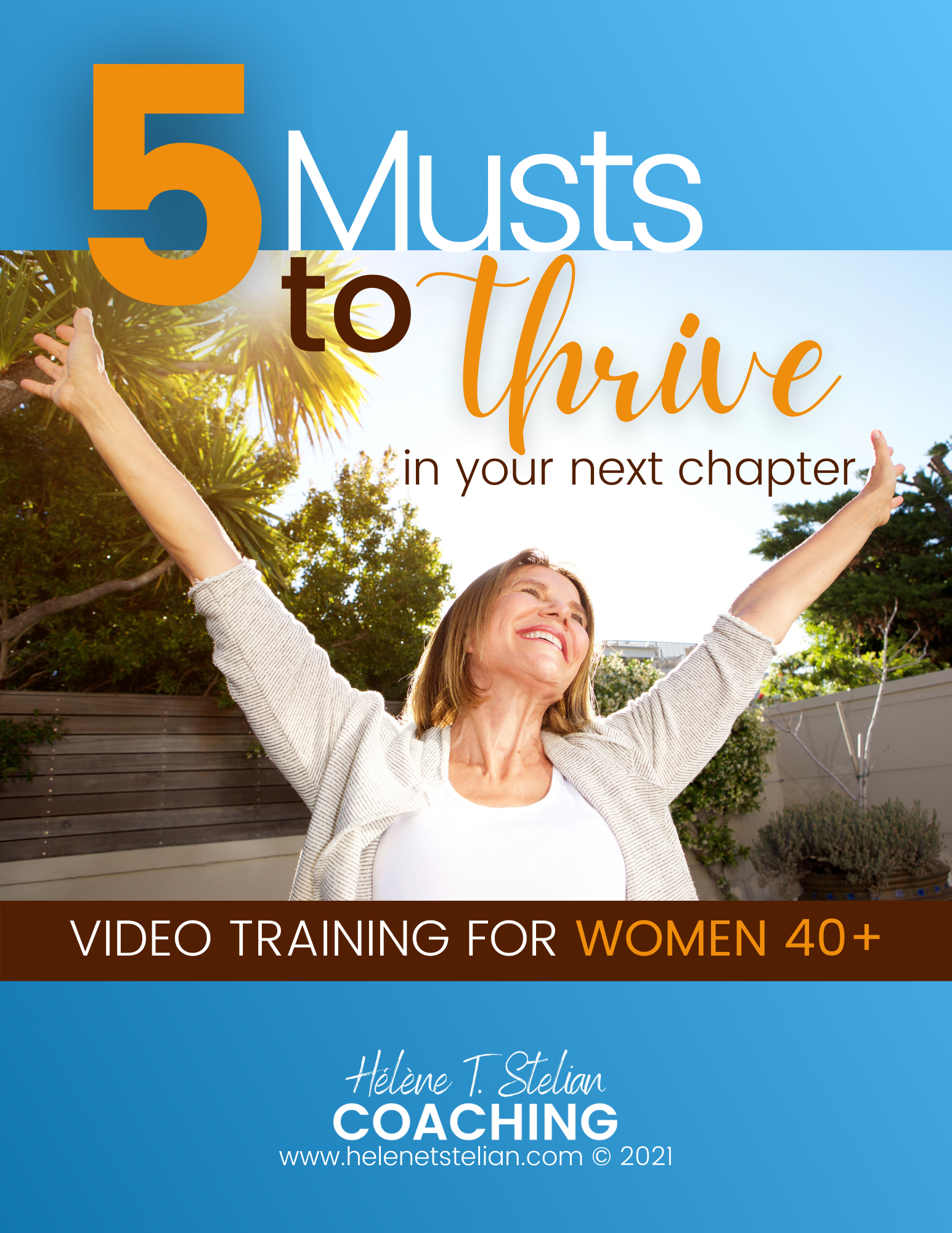



What a wonderful resource your are providing to caregivers and their family. Thank you!
Thank you for your kind words.
What an inspiring story and a great cause! Non-profit work is very challenging, but also very rewarding. Thank you for your efforts on behalf of caregivers.
Very challenging indeed! The affirmations that I receive from those we help keep me going! Thank you!
I have seen some healing gardens or meditation gardens in hospitals but until I was ill I didn’t get it. Just being around some nature that is beautiful and quiet is such a refreshing and calming influence when ill.
I love your work!
Nature and gardens feed my soul! I have been so busy getting ready for our spring benefit on May 22nd that I have been longing to be out in nature! Too much computer! Thank you for the nice comment.